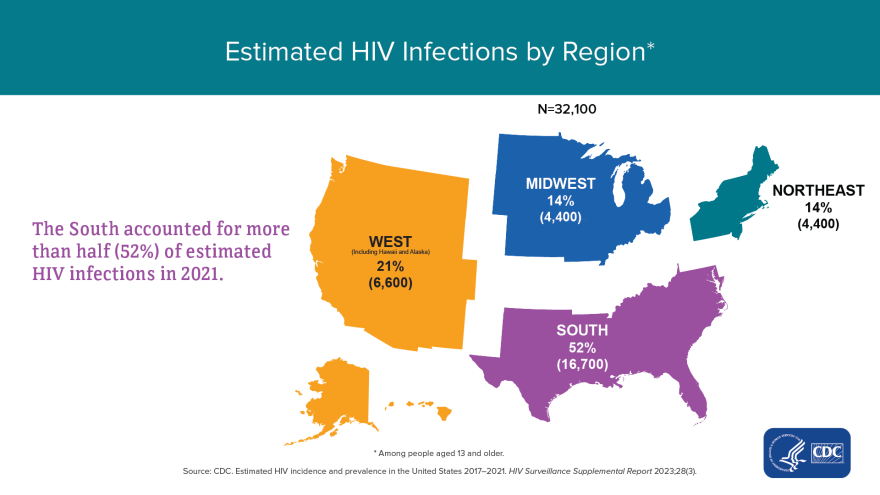The University of North Texas Health Science Center at Fort Worth is using a quarter of a million-dollar federal grant to improve HIV care and prevention in the region.
The funding is part of the largest federal program to help low-income people with HIV, called the Ryan White HIV/AIDS Program. According to the latest data from the U.S. Centers for Disease Control and Prevention (CDC), more than half of all new HIV infections were in the South.
The grant will help support education, training and skill-building for patients and providers.
Dr. Waridibo Allison is the clinical director overseeing the program at UNT Health Science Center at Fort Worth. She said it’s important for all health professionals to know HIV prevention has evolved since 1985.
“HIV is not a death sentence,” Allison said. “It is like having any chronic illness, like diabetes or hypertension, and we should screen for it, and when we find it, we should treat it. People can live good, long lives when we do that.”
In 2021, Dallas and Fort Worth were in the top five counties in Texas with the most new HIV diagnoses, according to the CDC. Most of these Texans were Hispanic/Latinx men between 25 and 34 years old, who had sexual contact with other men.

Allison said education, for both patients and health professionals, is a key part of HIV care.
“It’s a bit of a cliché to say, ‘Knowledge is power,’ but it is,” she said. “For patients to have that knowledge so they can advocate for themselves, for health professionals to have that knowledge so they can provide the best possible care, is critical.”
The program is in its planning stages, said Allison. She’s meeting with organizations and health providers to develop trainings that are relevant to the community.
Dr. Stacey Griner is also working on the program. She is an assistant professor in the HSC School of Public Health and studies sexually transmitted infection (STI) screening and prevention.
“I think of STIs and HIV as syndemic,” Griner said. “So, if you are exposed to another STI, it increases your rates of contracting HIV. I think everything travels together.”

Griner said part of the program will be educating doctors on how to test and treat HIV patients, even if that’s not a focus of their work.
“If you have a provider you’re going to go to, we should maximize all our efforts to provide the best care that we can, no matter what provider it’s coming from,” she said. “If you’re only going to go and get your teeth cleaned, I think that’s a provider who should be educating you on as much as they can.”
Increasing provider knowledge about HIV signs and symptoms means doctors might be able to catch the virus in its earlier stages, said Griner, when it’s easier to manage with medication and can, over time, become undetectable.
Griner recommends people get tested at least once in their life for HIV, and “form a relationship with your healthcare provider” to understand risk factors and safe sexual practices.
The HIV/AIDS funding is part of a national goal to reduce new HIV infections by 75% by 2025 and improve access to care for all people living with HIV.
Got a tip? Email Elena Rivera at erivera@kera.org.
KERA News is made possible through the generosity of our members. If you find this reporting valuable, consider making a tax-deductible gift today. Thank you.






